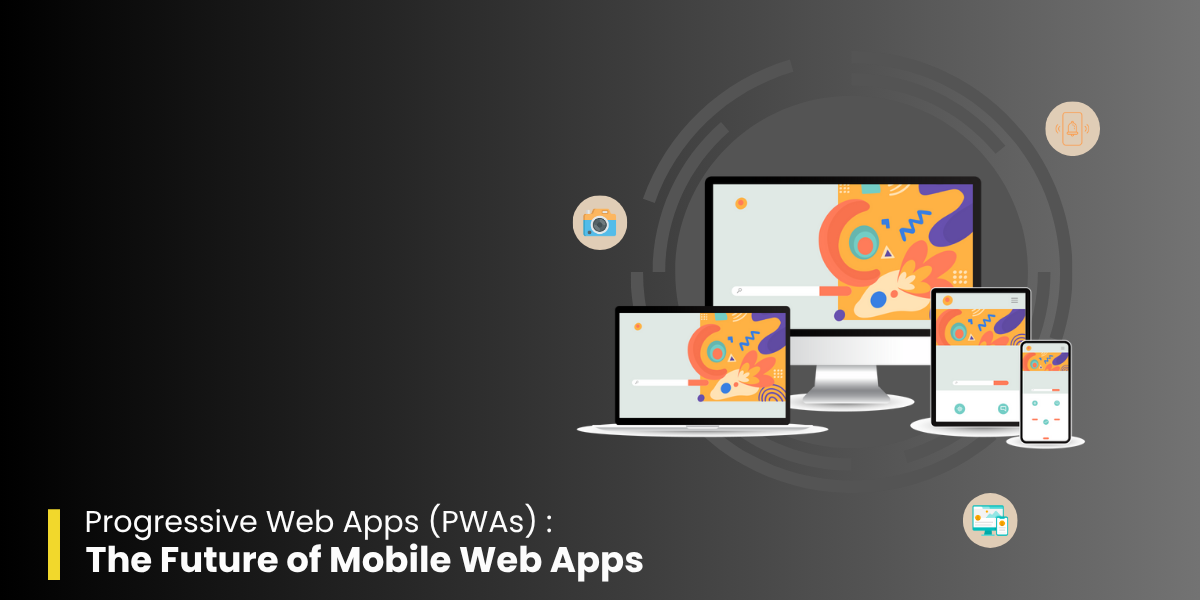Did you know how many mobile users there are in the world? They are around 5.78 billion as of October 2025, according to a report.
Can you imagine how many opportunities you can generate by approaching this mobile community? That count will blow your mind. That’s why businesses emphasize delivering excellent web journeys on mobile phones. But, only a few of them grab maximum prospects. Reason?
Their websites fail to deliver seamless user experience. They take too long to load or even feel clunky. Because of these reasons, users start searching for alternatives. This is where Progressive Web Apps (PWAs) emerge as a silver lining.

What are Progressive Web Applications?
A progressive web application (PWA) is a hybrid website consisting of the features of a website and an application for seamless or app-like user experience. PWAs resemble native apps because they can be installed on a user’s device. Moreover, users can enjoy its features offline. These sites send push notifications, and users seamlessly explore them through a browser. Overall, these apps are an amazing mix of web technologies like responsive design, and native app features.
Now that you have become familiar with it, understanding whether these web apps improve mobile conversions won’t be challenging.
Why Mobile Conversions Matter More Than Ever
A study by Google confirms that over 53% of mobile users bounce out of a website taking longer than 3 seconds to load. Another aspect reveals that faster loading websites outperform in conversions. They leverage three times higher conversion rates. It means that their revenues will be higher than slower competitors.
So be ready to lose sales if your website takes extra seconds. Here, you must understand mobile users’ intent. They expect laser-fast responses, which will certainly lead to seamless browsing and quick checkout experiences. On the flip side, underperforming websites won’t yield expected conversions. This is where a PWA can become a change-maker by optimizing mobile speed, interactivity, and engagement.
The Real Impact of PWAs on Conversions
Let’s check out some extraordinary benefits that make these websites business friendly.
1. Faster Load Times = Lower Bounce Rates
Unlike traditional mobile websites, PWAs use caching and background loading, which helps in achieving the standard of fast loading. So, these sites don’t need a network connection every time. Cached elements help quickly respond to the request even if the user is offline or uses weak signals.
This near-instant responsiveness inflates a bounce rate by up to 50%. It also means that your customers can storm into your sales funnel. Many brands like Pinterest and Flipkart have stamped this fact after embracing PWA.
2. App-Like Feel Without the App Store Hassle
Unlike native apps that fail to download if mobile storage exceeds limit or privacy matters, these web applications are accessible from the browser. One can add them to their mobile home screen to explore with one tap.
So, engagement can be overwhelming with fast and seamless accessibility, which these apps allow. These web applications offer fluid browsing, scrolling, and shopping experience, which takes conversions higher than usual.
3. Offline Functionality That Keeps Users Hooked
Low network or weak connectivity can barricade shoppers from shopping while traveling or even in their comfort zones. With dropped connectivity, sales drop. PWAs offer offline browsing experience to overcome this dysconnectivity. Simply put, a shopper can uninterruptedly explore whatever he is watching until the network returns.
This experience is a major factor in building trust and earning user satisfaction.
4. Push Notifications that Drive Re-engagement
Conversions increase when users discover potential launches. A push notification can do it effortlessly. Like native apps, PWAs automatically send alerts regarding discounts, new offerings, restocks, or intended offers, which attract customers to return and invest.
Overall, push notifications work not only as informants, but they also build active relationships.
5. Improved SEO Visibility
PWAs are web-based applications, which means they run on browsers where search engines discover them. So, these websites can harvest the benefit of organic reach, which native apps cannot enjoy. However, these sites also need optimization. Once it’s fully optimized, its structured data and fast loading speed make it unstoppable to rank higher on mobile searches.
Recall some golden rules of mobile-first indexing. Google prioritizes it, as these features lead to fast and mobile-friendly experiences. PWAs have all these features, which attract organic traffic, which is the foremost reason for overwhelming conversions.
When You Should Consider Adopting a PWA
PWAs are for everyone, not only large brands. Those who want to smartly multiply their revenues and online opportunities can switch to these web apps without investing in a full native app.
Here are some signs that indicate that PWA should be preferred now:
- When your current mobile site is struggling with slow load times.
- When your site’s bounce rates and engagement rates are not meeting expectations or they are below average.
- When you want to deliver an app-like experience without investing in its development.
- When you want to expand your online reach to both Android and iOS users.
This transition cannot be seamless unless you collaborate with experienced web developers or full-stack web developers. They understand the significance of optimization of both front-end and service worker integration. Moreover, these web apps can help achieve scalability, SEO-friendliness, and data security, which are the foremost intents of customers.
The Future of Mobile Conversions Lies in PWAs
As mobile experience dominates, businesses cannot underestimate the power of progressive web applications. As customers expect seamless interactions, these web applications can provide them while offering speedy, secure, and personalized browsing experience. These websites balance multiple factors, scaling loading speed without compromises, seamless engagement, and uninterrupted conversions with an app fatigue.
To integrate this experience within your website, you can collaborate with experienced developers. This initiative will enable you to harness the full potential of these websites while retaining customers via seamless engagement.
Conclusion
So, the answer to whether progressive web apps really improve conversions is yes. Preferring this alternative is not just a technical upgrade, but a strategic win for a brand that steps ahead of competitors in this mobile-first world. Those who are willing to achieve an all-time high engagement rate, better online performance, and measurable growth, nothing but a PWA is worth it.




